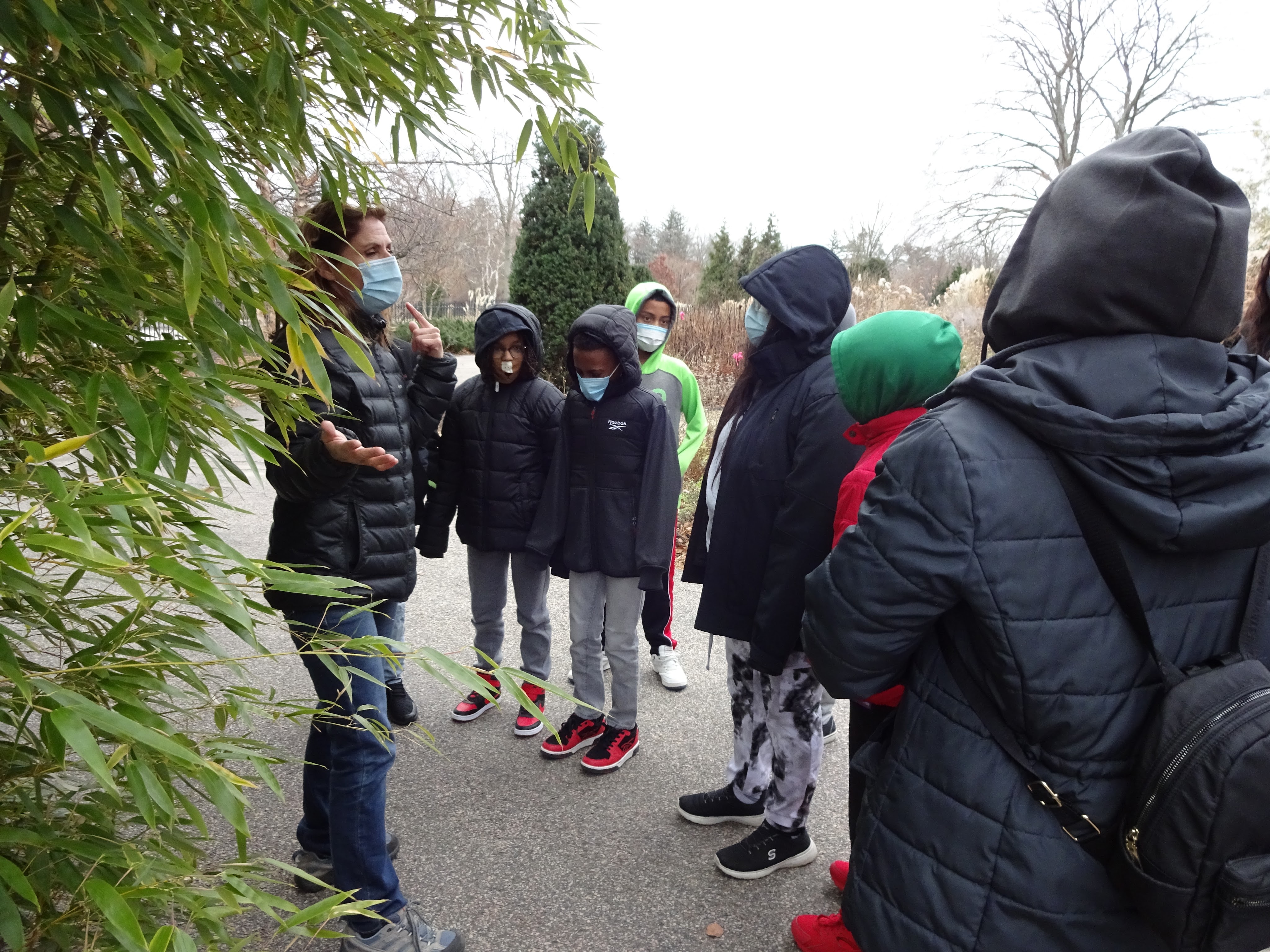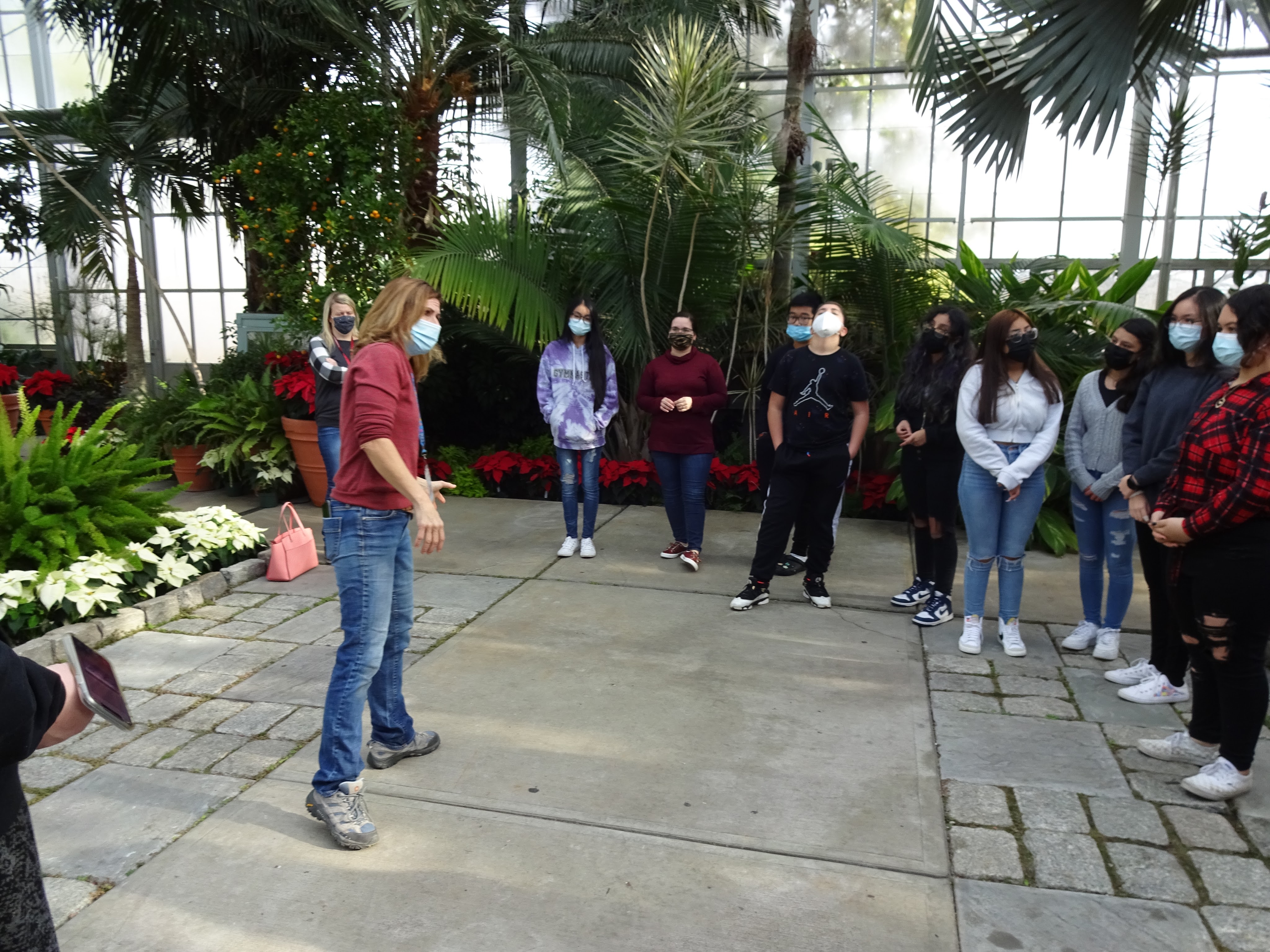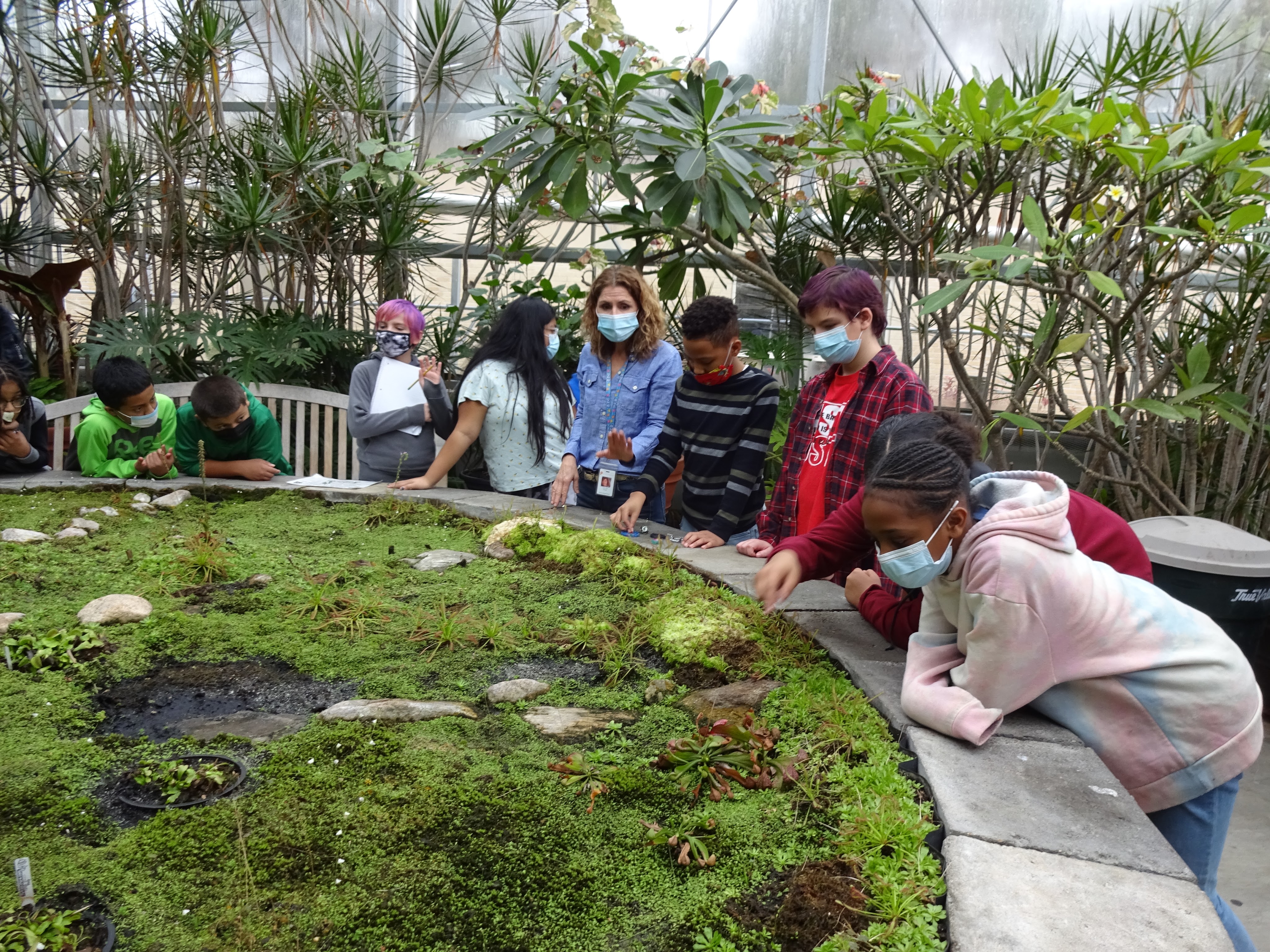SMILE for Field Trips to close out the year!

RWBC Central Falls 5th grade 12.8.2021
Central Falls Calcutt Middle School SMILE club 5th grade students with their teachers Molly MacDonald and Kelly Sierra, as well as SMILE director Mrs. Englander and assistant director Ms. Basel came to Roger Williams Botanical Center (RWBC) as part of a SMILE field trip funded by URI’s Dr. Evan Preisser’s NSF grant. A tour led by Lee Ann Freitas, director of RWBC, focused on the ecology of plants, and the interactions of plants and insects. Students examined plants in the outside gardens, were amazed to see a camellia bush in bloom in December, and learned about outdoor insect hibernating sites. Ms. Freitas brought the students inside the Conservatory where the focus was on habitats, carnivorous plants, plant insect herbivore interactions, beneficial plant insect interactions, and insect control by predator insects. Students enjoyed the visual learning experience and the beautiful holiday decorations. They had just completed a science unit about ecosystems and readily answered questions posed by Ms. Freitas. Ms. Freitas, Mrs. Englander and Ms. Basel were very impressed with their knowledge. We intend to have these students visit RWBC again in late Spring when both the plants, insects, and other herbivores in the outdoor gardens are in full activity.
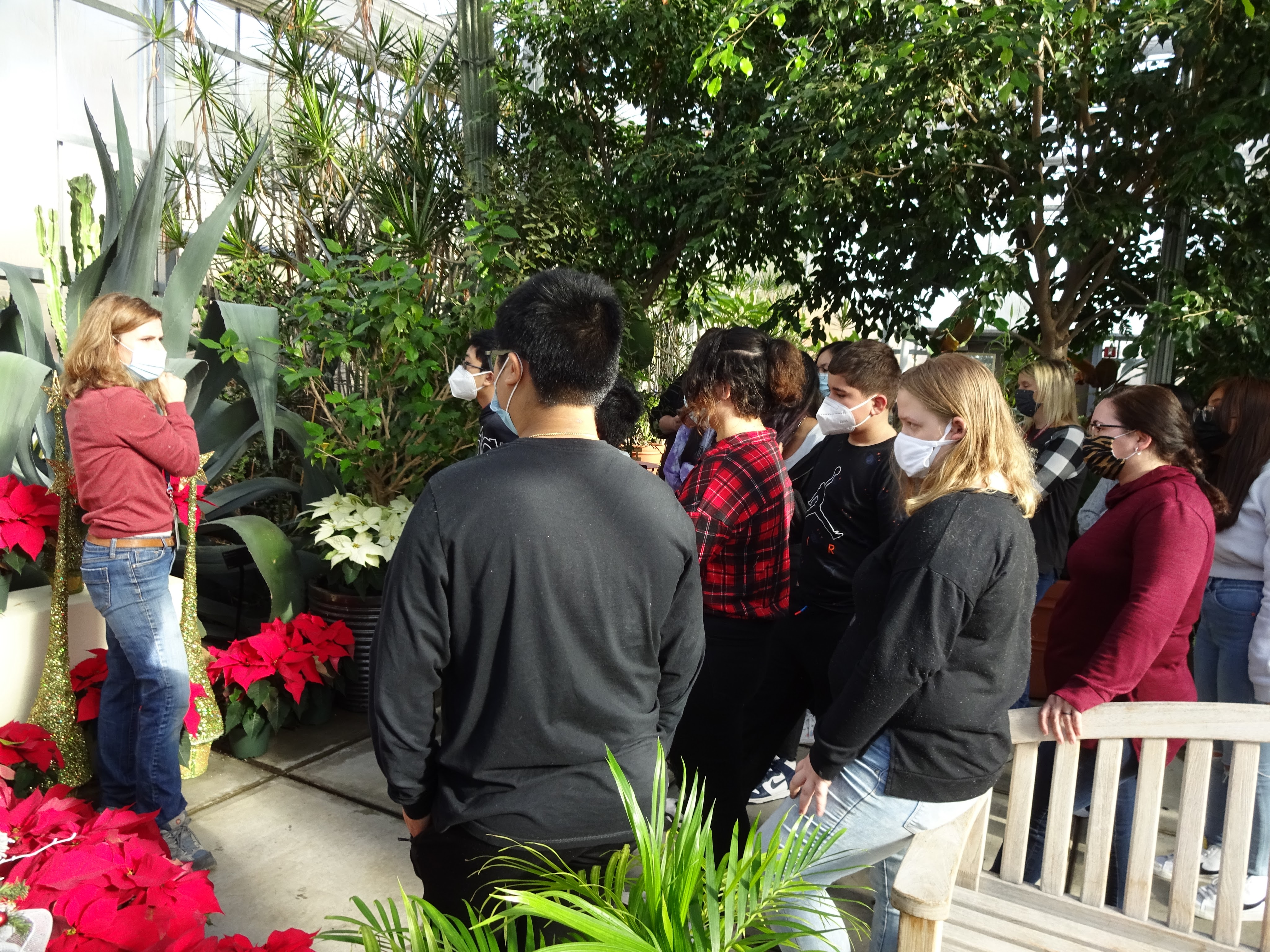
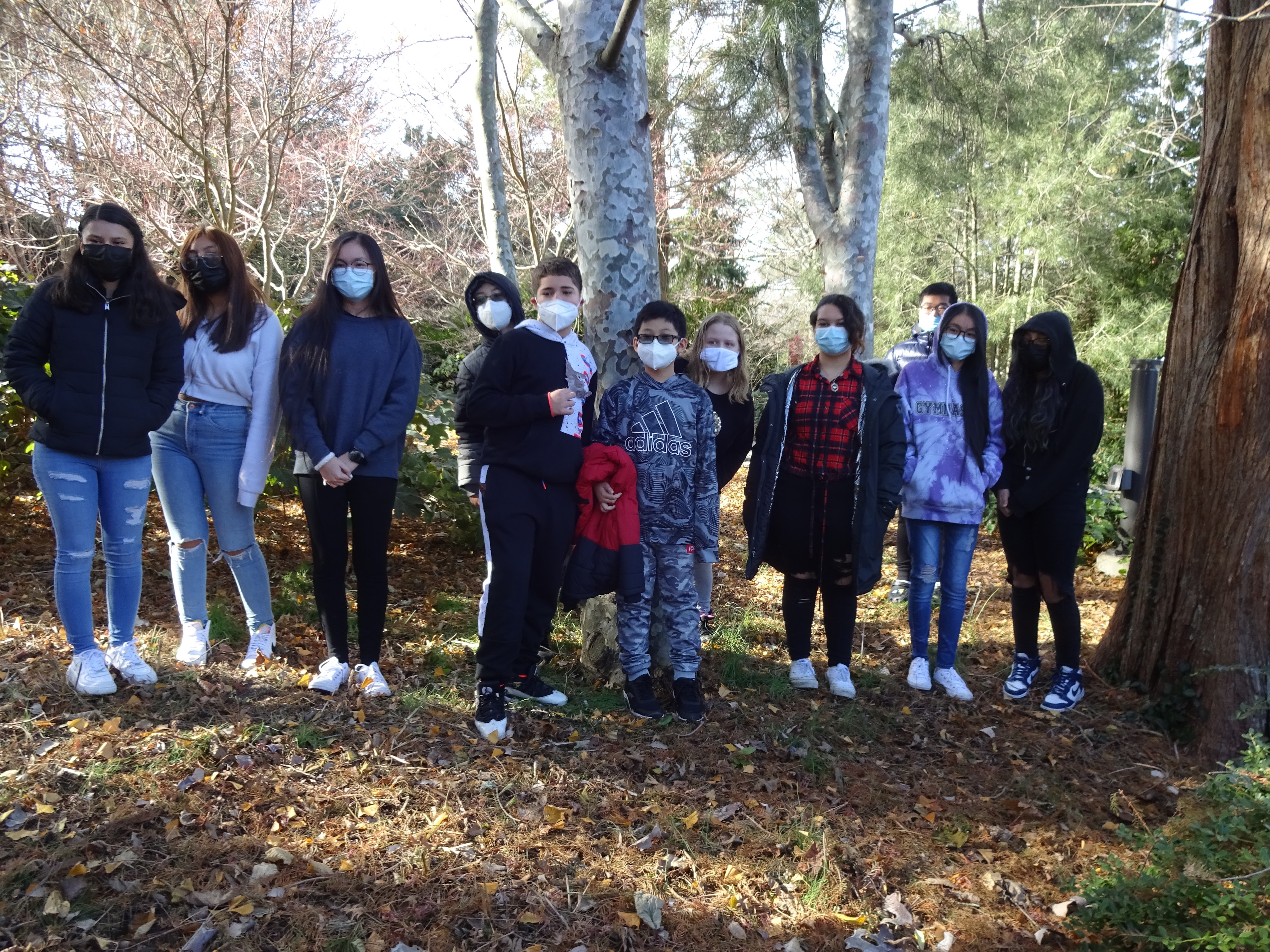
RWBC Woonsocket MS Villa Nova grades 6-8 12.15.2021
RWBC Woonsocket MS Villa Nova students grades 6-8 with their teachers Jennifer Hardy and Michaela Gormley, as well as SMILE director Mrs. Englander came to Roger Williams Botanical Center (RWBC) as part of a SMILE field trip funded by URI’s Dr. Evan Preisser’s NSF grant. A tour led by Lee Ann Freitas, director of RWBC, focused again as she did the previous week on the ecology of plants, the interactions of plants and insects, plant insect herbivore interactions, beneficial plant insect interactions, and insect control by predator insects. Students asked many questions and were interested in the many types of habitats and plant ecosystems in the conservatory as well as outdoors. They enjoyed their visit and look forward to visiting the Botanical Center at a different season to observe the plants and insect interactions in the outside gardens.
